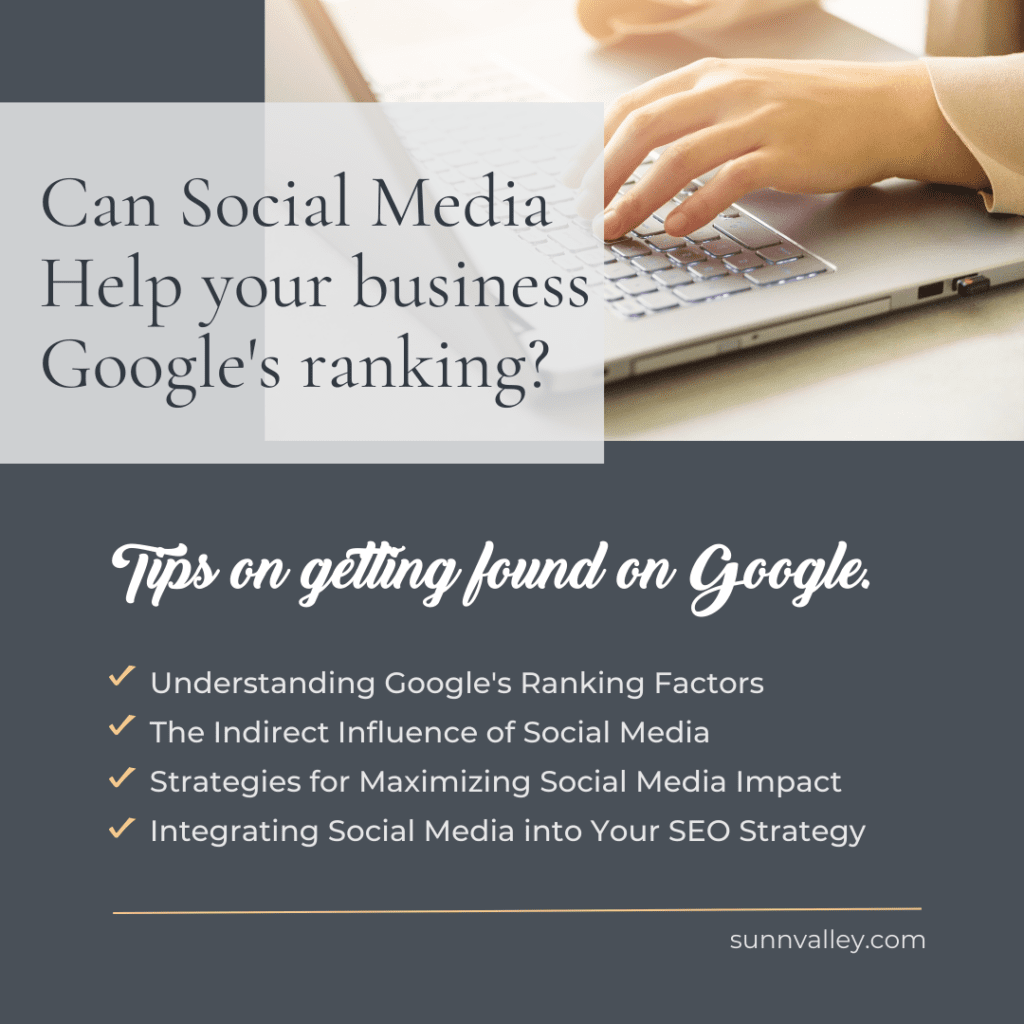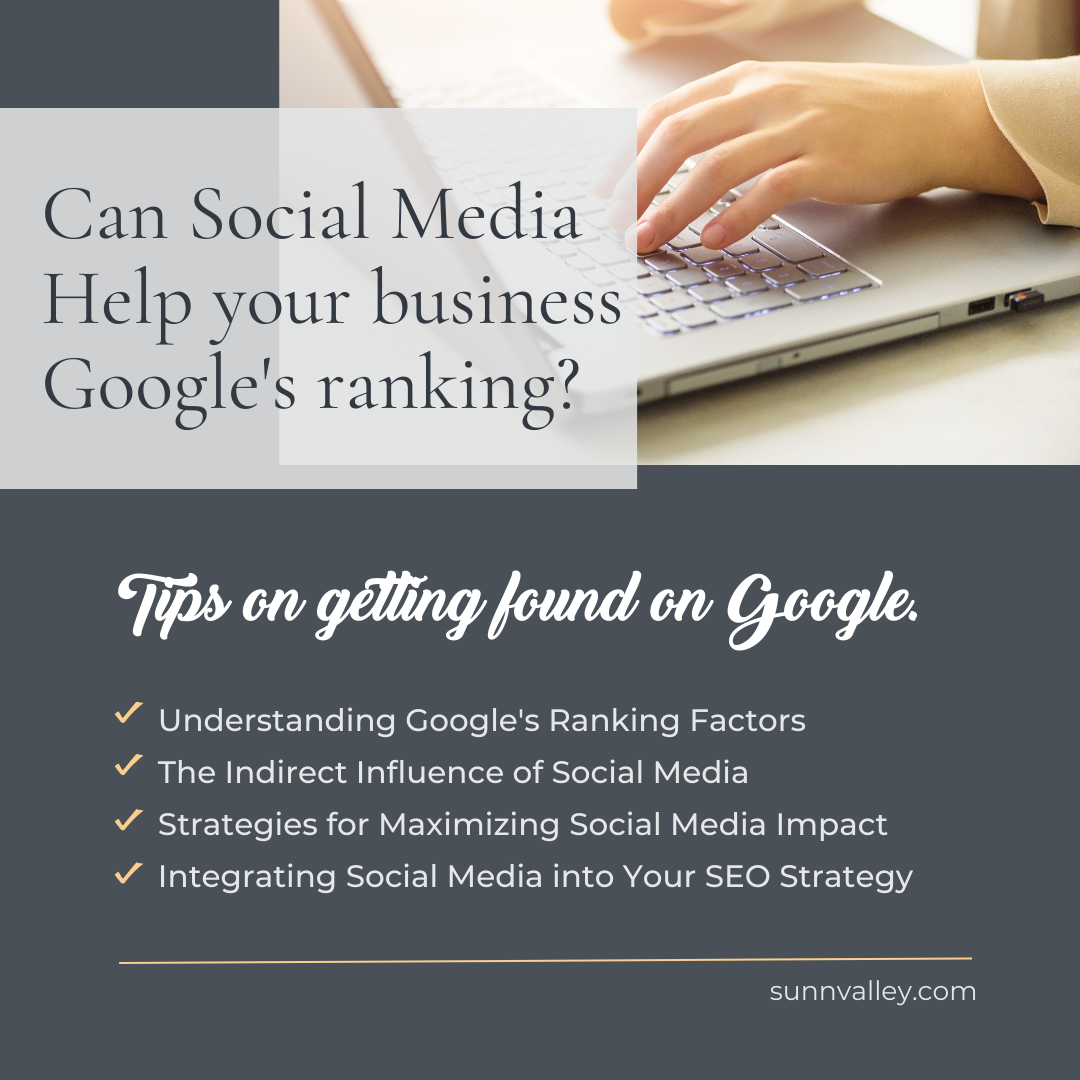Businesses are continually seeking avenues to improve their online visibility with Google’s ranking to attract potential customers. Several factors influence Google’s rankings. One is the relationship between social media and Google ranking. Google’s official stance maintains that social media signals aren’t direct ranking factors.

Understanding Google’s Ranking Factors
Google’s search algorithm is a sophisticated system. It evaluates various criteria to determine the relevance, authority, and user experience of a website. While social media signals aren’t explicitly included in Google’s 3 main ranking factors:
- Relevance: Google aims to provide search results that best match a user’s query. Websites with content closely aligned with search intent are deemed more relevant and are likely to rank higher.
- Authority: Backlinks from reputable websites are a crucial indicator of a website’s authority. The more high-quality backlinks a site garners, the greater its perceived authority in the eyes of search engines. See the top 10 SEO hacks to propel your website to the top of Google.
- User Experience: Factors such as page load speed, mobile-friendliness, and overall user satisfaction contribute to a website’s user experience. This impacts search results.
The Indirect Influence of Social Media
Google says social media signals themselves aren’t direct ranking factors. Seemingly they can exert a profound influence on a business’s online presence and reputation. Reputation and authority feed Google. This indirectly affects search engine rankings. See how social media activity may impact a business’s digital presence:
Increased Brand Visibility:
- Example: A local bakery regularly shares enticing images of its freshly baked goods on Instagram and Facebook. As followers engage with and share these posts, the bakery’s brand gains increased visibility among local residents. Consequently, more people may search for the bakery’s name or products online. This leads to improved search engine rankings for relevant keywords.
Enhanced Engagement and Backlinks:
- Example: A software company publishes a blog post detailing a new industry trend on its website and shares it across its social media channels. Industry influencers and other businesses take notice. They link to the blog posts from their websites or social media profiles. This is a way of citing it as a reputable source of information. These backlinks signal to Google that the software company’s content is authoritative and relevant, potentially boosting its search rankings. See how to grow your business by blogging.
Building Trust and Reputation:
- Example: A boutique clothing store actively engages with customers on social media, promptly responding to inquiries and addressing concerns. Positive reviews and testimonials from satisfied customers further enhance the store’s reputation. As a result, the store earns the trust of both its social media followers and potential customers. These customers are searching for similar products online, potentially leading to improved search engine rankings.
Strategies for Maximizing Social Media Impact
To leverage social media effectively and enhance their online visibility, businesses can implement the following strategies:
Create Compelling Content:
- Example: A marketing agency produces informative blog posts, engaging videos, and visually appealing graphics tailored to its target audience’s interests and preferences. By sharing this content on social media platforms, the agency fosters engagement. Also, this attracts a larger audience, indirectly bolstering its search engine rankings. See how to market a new website.
Foster Meaningful Engagement:
- Example: A fitness studio encourages members to share their workout experiences and achievements on social media using a dedicated hashtag. By reposting user-generated content and engaging with members’ posts, the studio cultivates a sense of community and loyalty among its clientele. This can positively impact both customer retention and search engine rankings.
Optimize Social Profiles for Search:
- Example: A digital marketing agency ensures that its social media profiles are fully optimized with accurate business information, relevant keywords, and a consistent brand image. By including location-based keywords and pertinent industry hashtags in its profiles and posts, the agency enhances its visibility in both social media and search engine results.
Conclusion: Integrating Social Media into Your SEO Strategy
While Google doesn’t directly factor social media signals into its search algorithm, the symbiotic relationship between social media and online visibility cannot be overlooked. By strategically leveraging social media platforms to increase brand visibility, foster engagement, and build trust with their audience, businesses can indirectly enhance their search engine rankings and attract more customers.
This holistic approach to digital marketing that encompasses both social media and search engine optimization (SEO) is essential for maximizing online visibility and driving business growth. By understanding the nuanced interplay between social media and Google ranking factors, businesses can craft a comprehensive SEO strategy that resonates with their target audience and propels them to success with online marketing.


